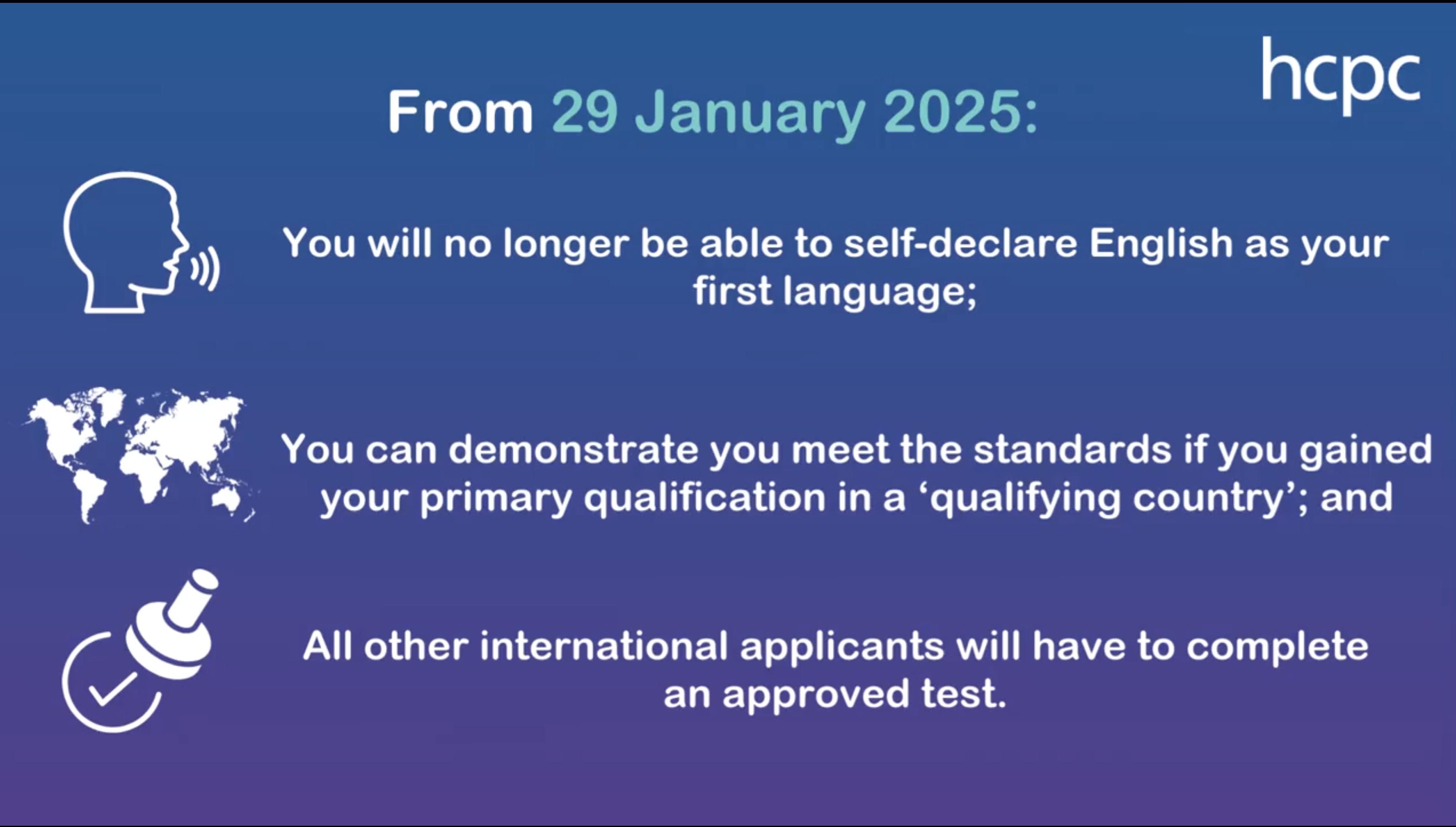Brendon Edmonds, Head of Regulatory Development and Performance, breaks down the recent improvements to our international application process

We are always seeking to improve our work to better protect the public. For the past two years, my team at the HCPC as been focusing our attention on our international registration route.
The HCPC international route is one of our key paths to registration, open to those who trained or studied outside the UK and to give a sense of scale, over the past two years we’ve received over 13,000 applications through it.
In an international application, we ask applicants to provide evidence that their training, skills and experience allow them to meet our standards. Our goal, while staying within the bounds of our legislation, is to make improvements to ensure the process is robust, fair and aligned with the expectations of our service users and our sector. We’ve made some key changes to deliver this, and have more to come.
1. Plagiarism checks
In 2024, we introduced a third-party software which checks international applications for plagiarism. We define plagiarism as taking someone else’s work, ideas, credentials or experiences and passing them off as your own. This includes using another person’s language, work, ideas, credentials or experiences or collaborating with another person or organisation and passing off their work, ideas, credentials or experiences as your own.
The documents submitted by applicants are scanned, assessed and, when flags are raised, sent for close review by our in-house team. These checks ensure that applications are reliable and authentic, which is essential for us to assess whether the applicant meets our standards.
2. Updated English language requirements
The ability to communicate effectively is a vital part of being a health and care professional in the UK. Consequently, we require international applicants to prove that they can speak English to a native level.
In January 2025, we removed the ability for applicants to self-declare their English language proficiency, making the process more robust. Those who gained their relevant primary qualification in a ‘qualifying country’ now use this as evidence, while all other applicants use an English language test score from a recognised provider. We ran a UK-wide consultation on these changes and received broad agreement with them. 
Social media post promoting the English language proficiency changes
3. More scrutiny
We are currently revising the steps in our application process to apply more scrutiny. The revisions will reduce applicants’ reliance on documentary evidence and increase the number who are tested as part of the process. These changes will reduce the risk of fraud and improve consistency in our decision-making.
4. Improving testing
In the next 12 months, we are undertaking work to improve the quality and consistency of our testing within the application process. The format of the tests will evolve to assess gaps identified during the assessment of the applicant’s qualification, and generic areas of practice regarding areas such as communication and decision making. These changes will allow decisions relating to individual applications to be made with a fuller consideration of all of our standards.
We are also planning improvements to the applicant experience, which will improve consistency and give those in the process a smoother journey overall. Our work in this area complements the wider development activity we are undertaking across our regulatory functions.
What this means for employers and managers
These changes bring important benefits for those who employ, manage or lead HCPC-registered professionals, as well as some things to bear in mind.
- Greater assurance of registrant competence and public safety
With international applicants being assessed more thoroughly, employers should feel greater confidence in their new recruits – specifically that they meet our standards and are ready to contribute to high-quality care, notwithstanding adequate induction and preceptorship periods. - Enhanced integration and communication within teams
Our updated English language requirements help to ensure that international recruits can communicate effectively with colleagues, service users and/or carers, which will help support cohesion and collaboration within teams. - Impacts on recruitment planning and workforce supply
It’s important to be aware that our introduction of more testing and greater scrutiny may mean some international applications may take longer to assess– something that employers may wish to consider when undertaking any recruitment planning.
Looking forward, we will continue to engage with employers and the wider sector about these improvements. We want to make sure that our approach provides real support to the health and care workforce and delivers public protection. To stay abreast of our work, follow us on X, LinkedIn or Facebook, and look out for developments.
- Published:
- 24/06/2025
- Audience
- Employers
